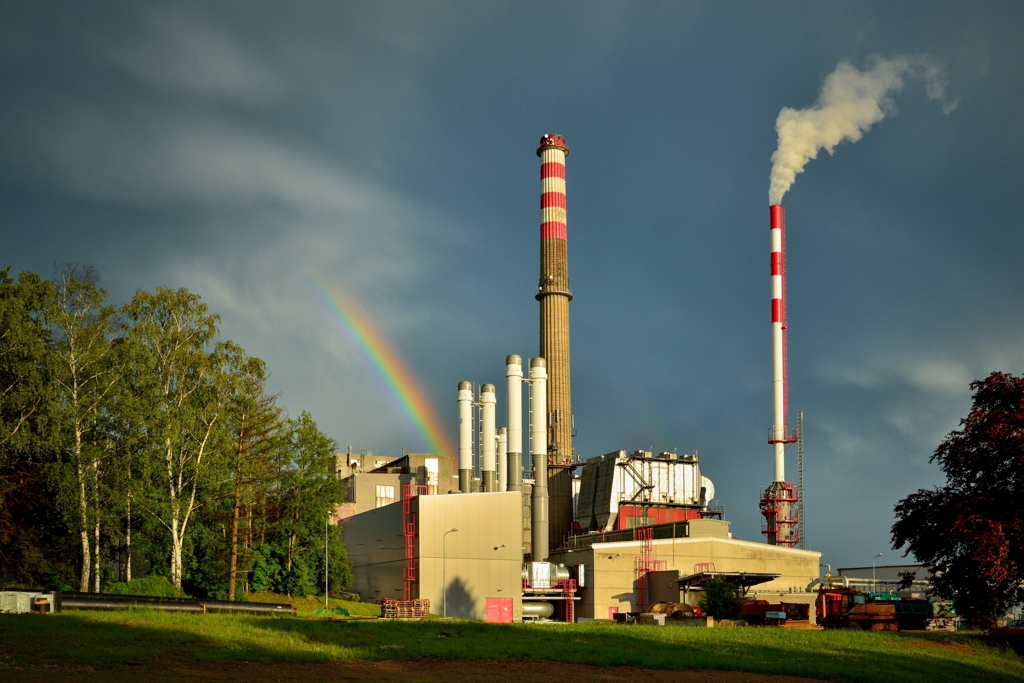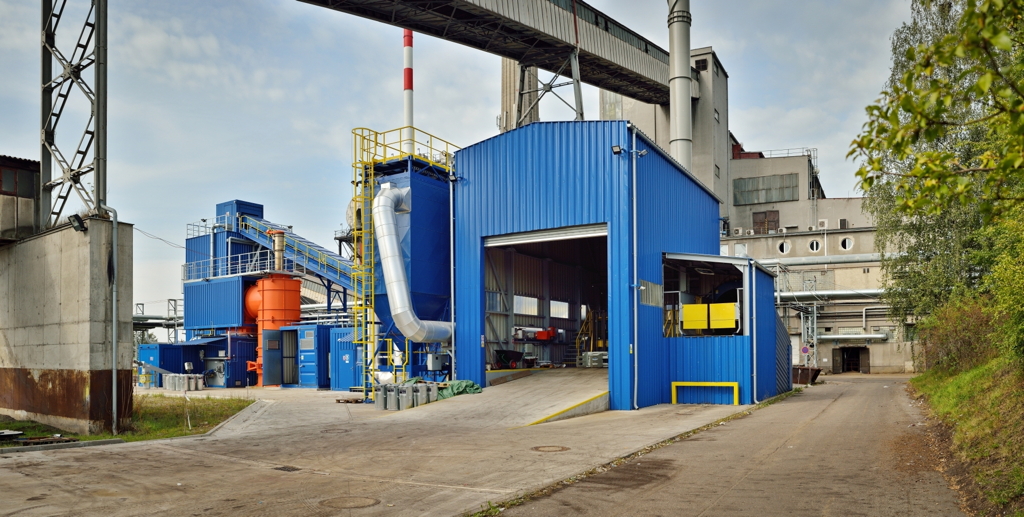CTU FEE study: The Czech heating industry does not have to be an obstacle to meeting climate goals, but it needs innovative investments
In the Czech Republic, more than 300,000 households still use coal for local heating. Four out of ten Czech households are then heated from the heat supply system, with 60% of the heat being produced on the basis of coal. Experts from the Faculty of Electrical Engineering suggest how to get rid of harmful emissions, how much it will cost and how to invest.

A new study by the Faculty of Electrical Engineering shows the way of a gradual transition to ecological solutions, including the temporary use of natural gas. This is the first scenario of realistic decarbonization of the district heating industry in Central Europe. Households in Central and Eastern Europe are typically dependent on coal and gas for their heating , and international research teams have not yet adequately addressed the problem. According to the study, it will be necessary to invest over 98 billion crowns in the district heating industry by 2030, but natural gas can only be a temporary fuel due to the goal of climate neutrality.
“Our study shows the way to decarbonise the Czech Republic and reduce greenhouse gas emissions without unrealistic promises. We anticipate the necessary investments in the district heating industry, relying on the short to medium-term use of natural gas, which, however, is not in itself considered a sustainable source of heating. It is therefore crucial to prepare the conditions for the sector's transition to other, alternative fuels and gradually count on the massive start of heat production through heat pumps. In addition, the good news is that we know how it will cost and how much it will cost,” says one of its authors, dr. Michaela Valentová from the Department of Economics, Management and Humanities, Faculty of Electrical Engineering, Czech Technical University.
Michaela Valentová adds: “Although the use of natural gas brings an immediate reduction of greenhouse gas emissions compared to coal by 40 to 50%, it is not a way to achieve carbon neutrality and must not be a permanent solution in the current technological environment that would hinder long-term goals. in the field of decarbonisation.” Natural gas will have to be gradually replaced by other, carbon-free technologies in the coming decades.
At the same time, plans for the transformation of heat production must take into account the expected development of renewable energy sources (solar collectors, photovoltaic power plants, heat pumps) together with heat storage and design the whole development of heat supply systems to allow gradual integration of decentralized heat sources based on renewable sources.
According to the scenario, which assumes the lowest costs, the total necessary investments in the heating sector in the period 2021–2030 are estimated at CZK 98.3 billion and in the conservative scenario at CZK 107.2 billion. For comparison: in 2014–2019, a total of CZK 33.1 billion was invested in measures to reduce greenhouse gas emissions in the district heating sector, i.e. only one third of the amount that will need to be spent in the next ten years.
Michaela Valentová also emphasizes another important aspect: “From the point of view of the current rules for emission regulation, two thirds of the current investments in the heating industry are unsustainable and today they would not receive investment support from public sources. It will therefore be crucial to invest innovatively in the transformation of the heating industry.”
The study also points out that decarbonisation on the heat production side must also reflect the prioritization of increasing energy efficiency on the part of consumers and thus the expected decline in heat consumption and the change in heat consumption profile during the year.
Biomass can fully replace coal only in small or medium-sized installations, for large installations, ensuring a long-term supply of sustainable biomass would be a great challenge. Addressing heat demand in large urban areas would require large amounts of biomass, which can rarely be obtained in a local, sustainable way. In addition, the transformation of the heating industry must respect the realistic, long-term sustainable potential of biomass usable for heat production and supply.
Energy recovery from waste is usually a smaller-scale solution that can ensure a sustainable and reliable energy supply while meeting the needs of sustainable waste management. However, the implementation of this approach can only be carried out by agreement and cooperation with the surrounding municipalities, for which this concept will be part of their waste management strategy.
Most investments will be implemented in installations of up to 50 MWt, with the largest amount of investment needed for the construction of new cogeneration units and the reconstruction of existing cogeneration units. Between 2025 and 2030, the main part of the required reconstruction will take place, covering about 70-80% of the production base. From 2030 to 2035, the last part of about 10–15% of the production base will be reconstructed and the last coal-burning plant will be decommissioned.
The Modernization Fund, in which approximately CZK 40 billion is earmarked to support the heating industry, is expected to play a key role in supporting investments. Other resources will be the operating support system as well as the facility to support recovery and resilience. The level of investment support will be very important in order for the transformation of the heating industry to be reflected as little as possible in the price of heat for the final customer.
The director of the C-Energy Planá heating plant, Mr. Libor Doležal, states: “The key to optimizing the operation of our heating plant and reducing costs is the diversification of fuel bases and high flexibility of operation. In Planá, we replaced three old coal-fired boilers with two fluidized bed boilers equipped with a flue gas desulphurisation system and reconstructed a turbogenerator. Today, 45% of wood chips are co-incinerated in boilers. We have also installed a total of six high-efficiency cogeneration units with a total output of 60 MW with flue gas boilers. We also have the largest battery storage in the Czech Republic. Last year, our vision was to phase out coal and achieve carbon neutrality between 2025 and 2030, but today we know that we will be done with coal by 2023.”
The Climate-energy Investments Study in the Heating Industry
The Executive Summary of the Study

